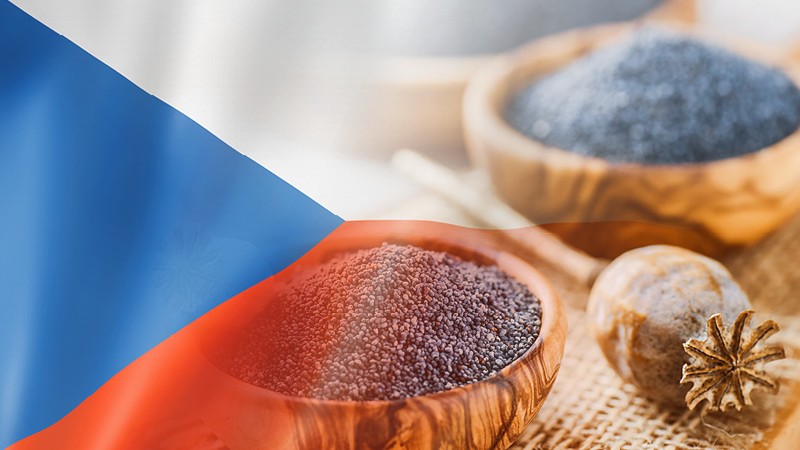Blue poppy seeds: “Czech farmers should focus on improving the landscape”
January 8, 2025 at 11:00 AM ,
Der AUDITOR

Which were the main difficulties faced by the blue poppy seed market in 2024? What has changed compared to the last two years?
The beginning of 2024 was marked by a decrease in price growth. At the end of 2023, no one expected that the price could rise after the New Year. However, the demand was so great that the price rose by up to 40-50%. It has once again been shown how difficult it is to predict the development of poppy seed prices.
36.000 ha of poppies were sown in the Czech Republic, which is the largest acreage of the last few years. The ratio of winter poppy cultivation to spring poppy cultivation has also increased. The harvest went relatively smoothly, the yields per hectare were slightly above average, but there were and are quality problems with a lot of poppy seeds.
With several global political tensions, the war between Russia and Ukraine and the import tariffs on Russian agricultural commodities for shipments to Europe significantly increasing, will this also have an impact on the blue poppy seed market?
It is known that Russia was one of the largest buyers of Czech blue poppy seeds. The war between Russia and Ukraine has of course greatly affected the poppy trade, trade (to a lesser extent) is still ongoing, but there is great uncertainty as to whether the trade will continue, and to what extent.
In 2024, climate change and its impact on global commodity production was once again a major issue. How should growers and market players act to be prepared for the coming years?
Agricultural land is largely "affected" by large-scale farming from the previous regime. Czech farmers should definitely focus on improving the landscape – retaining water in the landscape, restoring biodiversity, reducing erosion, retarding water in hydromelio systems, roughening parts of the landscape, which will also have a flood-fighting effect, etc. These measures will make it possible to solve all the acute problems of the current Czech landscape, which are drought, flash floods, water and wind erosion, and thus represent a necessary step for the adaptation of the Czech landscape to climate change.
Market players should contribute part of their profits to the above-mentioned projects, to support associations dedicated to improving the landscape, to planting greenery in the landscape etc., as the CROPFUL company does.
Regarding poppy seeds (as mentioned earlier), the proportion of winter poppies (which are grown in drier areas) grown compared to spring poppies increased last year, and this trend can be expected to continue in the future.
Once again commodity prices have risen significantly in many markets, some being at all-time highs or close to. Inflation and higher production costs are leaving their mark; the blue poppy seed remains one of few exceptions this year. Do you think market players will profit from these developments?
Poppy seeds are a "small-volume" commodity, where inflation and higher production costs do not have such a big impact, but mainly the size of the crop. Therefore, estimates of sown areas, crop estimates, etc. are closely monitored, which can indicate the development of prices of the given commodity. Of course, inflation and higher production costs will be fully reflected in the final price of poppy products.
Looking at the current market situation, what challenges might the blue poppy seed market face in the 2025/2026 season?
It looks like the sown areas for 2025 will be very similar to 2024. It also looks like the 2024 crop will be completely sold out and that the 2025 harvest will start with "empty warehouses", just like it was this year. We will again wait for yield estimates, for now we can only say that the winter poppy crops in the Czech Republic do not look very good – September was very rainy, farmers could not sow and treat the poppy crops in time.





